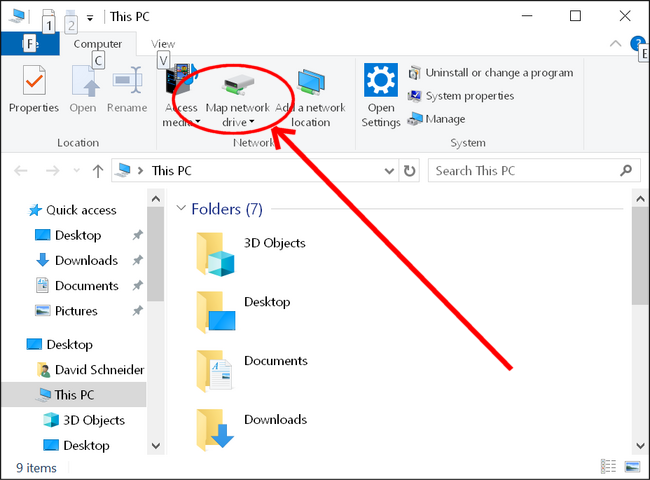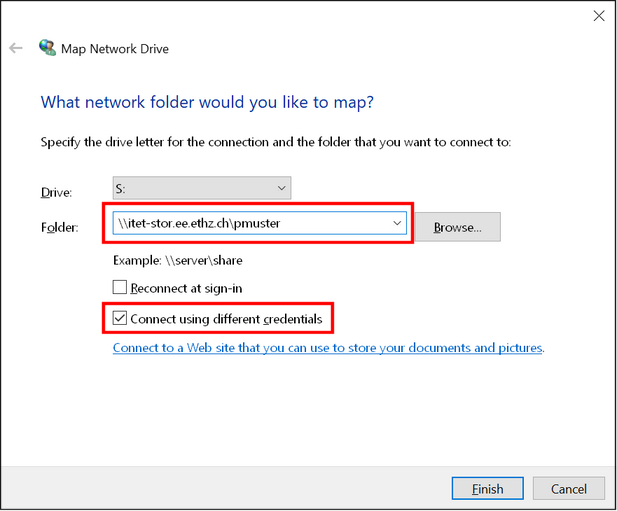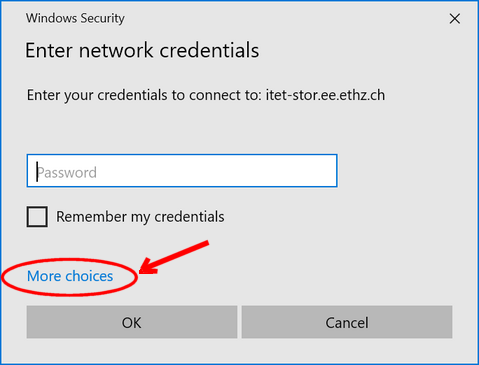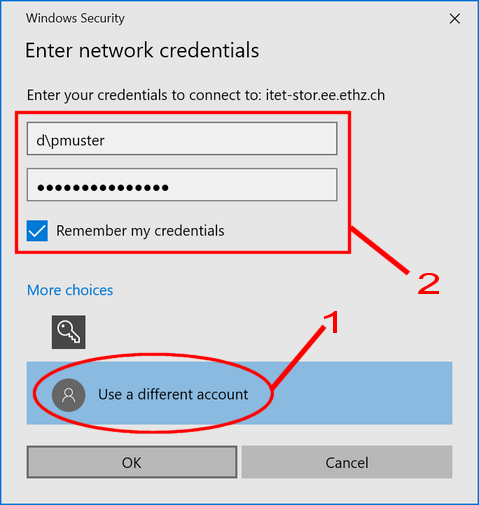|
Size: 1597
Comment:
|
Size: 1642
Comment:
|
| Deletions are marked like this. | Additions are marked like this. |
| Line 20: | Line 20: |
| Instead of entering a password, click "More choices", then click "Use a different account". The window looks now as follows: | Instead of entering a password, click "More choices", then click "Use a different account" (1). The window looks now as follows: |
| Line 24: | Line 24: |
| <<BR>> | Fill in the username and password fields (2). |
Windows Network Drive
You can access your home and project directories by mounting \\itet-stor.ee.ethz.ch\username as a network drive in Windows. In this example, we will make \\itet-stor.ee.ethz.ch\pmuster available under the drive letter S.
If you do this from outside ETH, you need to establish a VPN connection first.
Click on the computer icon ("This PC") on the Windows desktop, then click on the 'Map network drive' button from the upper ribbon bar of the opened folder window:

In the dialog box that appears, choose the drive letter you want to use for this mapping: 
The Address to your folder is \\itet-stor.ee.ethz.ch\YOUR-USERNAME. Im this example we chose pmuster as the username. Replace pmuster with your own ETH username (login name). Activate the checkbox "Connect using different credentials" and if you desire it, set "Reconnect at logon" to make the network drive mapping persistent between computer reboots. Thn click the "Finish" button.
A new dialog box opens to enter a password:

Instead of entering a password, click "More choices", then click "Use a different account" (1). The window looks now as follows:

Fill in the username and password fields (2). As username, enter d\YOUR-USERNAME, and as password, use your ETH password. When done, click on OK. You can now access your personal itet-stor share in Windows Explorer under the chosen drive letter ("S:" in this example).